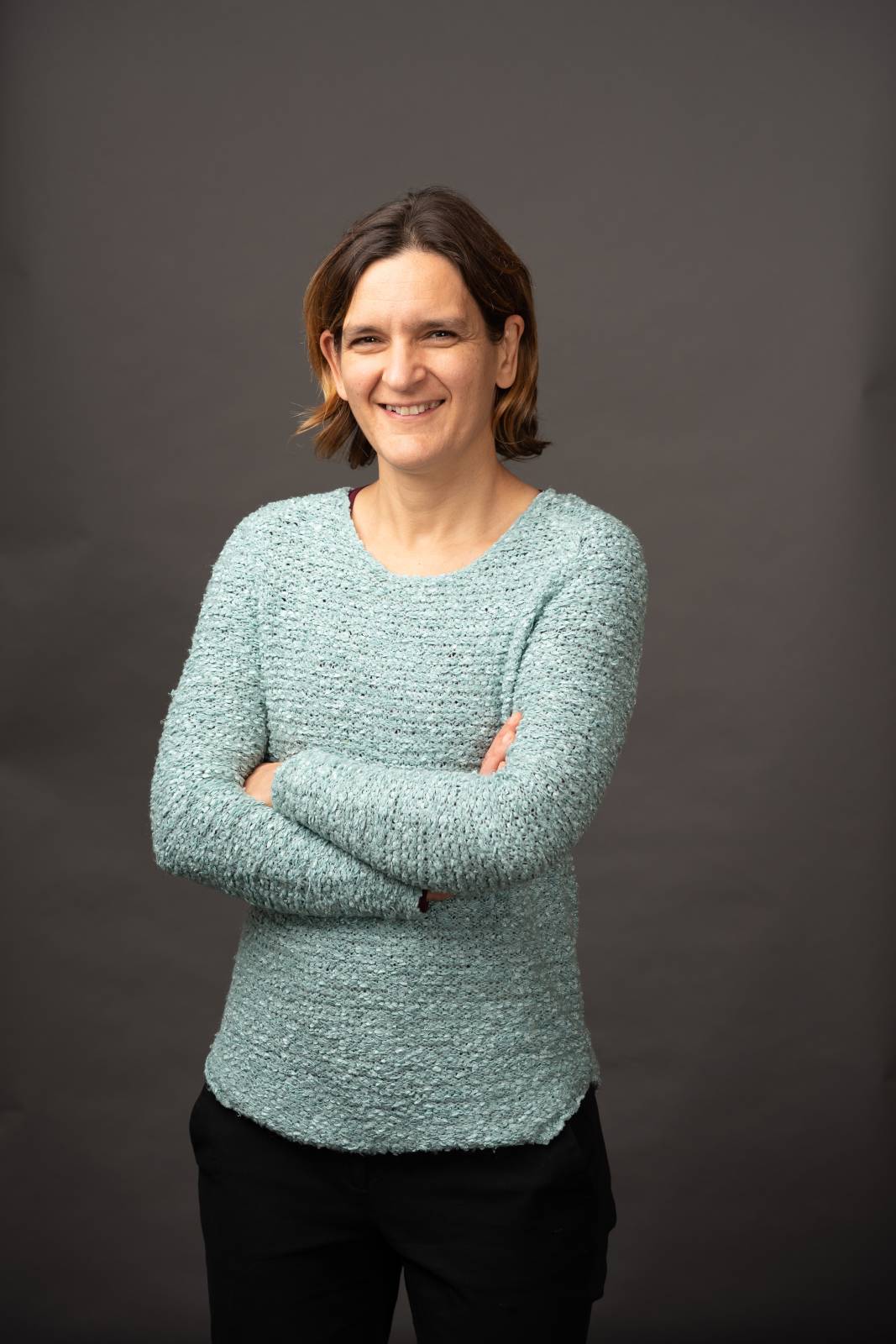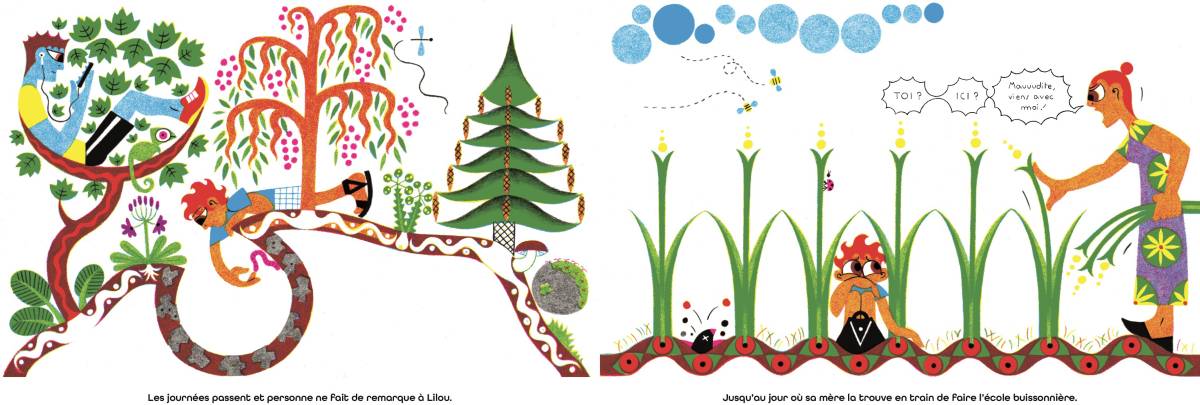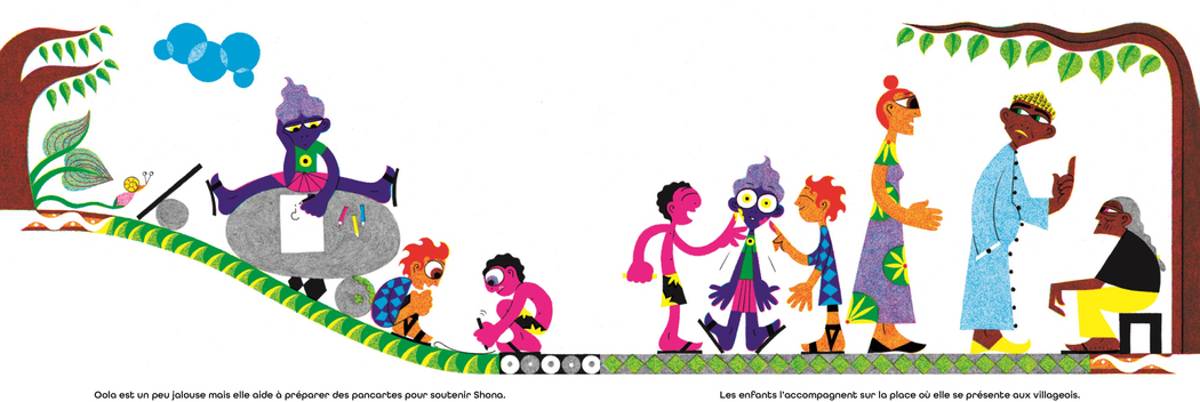It is not because we are addressing children that we have to be simplistic. Esther Duflo sticks to it throughout the first books in a series that will eventually number ten at Seuil Jeunesse. The 2019 Nobel Prize in Economics invites young people to ask themselves the right questions about poverty.
Awareness“We lived in the western suburbs of Paris but my mother, a doctor, sometimes went to work in poor countries and I remember the photos she brought back. Around the age of 8 or 9, this awareness of poverty also came through comic strips, including one on Mother Teresa in Calcutta which I remember very well. There were also those child soldiers that I saw in Astrapi or Okapi. As a child, these images marked me and were influential later in my life in deciding to, one day, do something about it”.Board taken from the album “Oola”, devoted to the issues of local elections. Illustration Cheyenne Olivier
Chasing stereotypes“It’s not that the stereotypes about poverty are entirely wrong, but the truth is much more subtle than any of them. Sometimes the poor are portrayed as absolutely desperate, on the brink of starvation, unable to make decisions in such dire circumstances. Or as lazy. Sometimes too, poor children are represented as angels, the very example of purity. Each time, an aspect is raised and thereby becomes a caricature”.
This wide world “The children are completely open, they don’t have any stereotypes in their heads. Using fiction makes it possible to bring them closer to these other children, through a whole village universe and a story each time centered on a character. If it doesn’t create familiarity, at least it will generate empathy.
The citizens they will become will know that this is a dimension of the world, that they cannot forget it and close their eyes. © Bryce Vickmark
© Bryce Vickmark
We live in a big world. Children today are very exposed, especially to images of disasters. There, they will see that children live in very different conditions from theirs but if there are problems, solutions exist, joy too. I hope they will keep this idea in them, a somewhat peaceful vision of what is different”.
Write for young people“When you write for young people, the fiction must capture the children’s attention through twists, attractive characters… And, at the same time, for me, it is very important that everything that is said be true in the sense in which these experiences were lived. The solutions evoked are never invented, heroic or magical. It is always something that has already been tested and proven.
Ditto for the illustrations of the talented Cheyenne Olivier. They are full of fantasy but also, in a sense, very realistic. Every detail is carefully thought out, faithful to the reality of a poor village. It is a great joy, when writing for children, to combine the two, great freedom and truth. This exercise is very different from what I usually do, but it’s very pleasant.
I believe that I was able to carry out this work only because I have been studying this subject for twenty years and I know this world. To be able to distill in an imaginative but real form, it can only be the tip of a knowledge iceberg.
This is probably also why I had to wait a very long time before being able to write for children”.
Superprofits“It’s useful to have this debate about superprofits. Is it normal for companies and their managers to suddenly earn a lot of money solely thanks to the economic situation, whereas when things go badly they are insured like during the Covid? Taxing superprofits is only part of the question about taxing corporate profits in general. Should it be uniformly higher in the world, more progressive in order to better distribute wealth? »
Will the war in Ukraine precipitate the end of “happy” globalization?
How is poverty?“If we take a step back, since the 1990s, great progress has been made in the fight against poverty: reduction of infant and maternal mortality, schooling of children… There were fundamental reasons for optimism . But from 2019, the Covid made us take a big step back. Illustration Cheyenne Olivier
Illustration Cheyenne Olivier
This pandemic has been a huge economic shock for the poorest countries. And just as they were about to come out, then came the war in Ukraine, the rising energy and food prices.
But the increase in prices is linked to the economic situation, we will recover from it and we will return to progress. One of the reasons for the improved quality of life in developing countries is the greater attention given to these problems by governments themselves and more pragmatism about the solutions”.
Global warming, a real basic danger“Now the real underlying danger is global warming and, in particular, the fact that the impacts will be much more severe in poor countries. On this, we will have to adopt the same pragmatic attitude that I have applied throughout my life to the fight against poverty and find ways to implement, see what works, and help the poorest to adapt to the disasters already caused by global warming. I hope that the summer we have just experienced will enable the rich countries to become more aware of their responsibilities. It is up to us to know what policies we want”.
Florence Chedotal
We wish to say thanks to the author of this post for this remarkable web content
Children’s books – Esther Duflo, Nobel Prize in Economics, talks about child poverty
We have our social media pages here and other pages related to them here.https://nimblespirit.com/related-pages/

